Greetings everyone, and Happy New Year. 2023 was kind of a fucked up year. Between multiple depressing world conflicts, growing political tensions heading into an election year, and big changes in my personal life that have me constantly anxious, I sometimes don't even know how I managed to make it through without collapsing. But among a lot of changing feelings and struggles, one thing that persists is my love for great stories and emotionally resonant art. Having something like this to drive me is too invaluable to put to words. But this is a blog, and I'm a self-proclaimed writer, so what the hell else am I supposed to do but put it into words as best I can? I love great stories and feel driven to share what makes them special with others, so if you share in that passion then I'd love if you see the words for that which I can't put into words.
Last year was a transition point in my relationship to media, where I branched out from being purely an anime junkie into a more "general art appreciator" so to speak. I celebrated the liberation of exploring all this new stuff with three mega-lists highlighting the most noteworthy or important things I experienced, a ranking of every anime to come out that year which I completed, and then an overall favorites list. Given that it didn't even come out until a third of the next year had passed, that endeavor was maybe too ambitious for me to handle in a reasonable amount of time and without professional motivation, so this year I'm content to simply rank all of my favorite pieces of media that I experienced in 2023. Although there's a bit less variety in the medium this year - I didn't read any books, I only completed a one-shot manga which I'm not even sure how I feel about, and at the end of the day anime is still my autistically driven special interest, so there's, uh... a lot of that - I still feel like I saw a lot of new and wonderful things worth expressing my love for. But before that:
Honorable Mentions:
Though I call this section "honorable mentions," this isn't meant for the stuff that almost made the list but didn't quite make the cut. Rather, this is for the stuff I know I would want to include or mention one way or another, but can't justify dedicating individual sections too.
While this list is meant to share my passion for new art I loved, my passion can only extend so far with so little time, money, and ability to hold my bladder at a movie theater. So I had to miss out on a lot of great stuff that I'm sure would make the list normally. I won't dedicate a whole discussion of things I didn't watch, but I'll briefly mention that some of my bigger misses this year were some noteworthy films I'll have to catch up on before the Oscars, basically every anime that was released on Netflix as a batch, and pretty much every video game to have come out this year. If I had my way, I'd do nothing but experience all of it, but I had to miss out, so if you're wondering why stuff like Tears of the Kingdom, Baldur's Gate 3, Killers of the Flower Moon, Scott Pilgrim Takes Off, or Pluto aren't here, this is why. I hope to get to them soon.
I'd like to talk about a few standout anime from this year that I don't feel comfortable putting on this list just because they're only half way over. On my impressions list, I mentioned that The Apothecary Diaries premiere was unassuming but seemed to be so well put together that I'd be shocked if it wasn't good in the long term. I was swiftly proven right when it came to be one of the year's best anime as of its first half. It's helmed by the most aggressively endearing protagonist of 2023 anime in Maomao, set in a gorgeous, lively ancient Chinese-inspired setting, and has an addicting story full of both satisfying short-term payoffs and intriguing long-term dilemmas. But calling Maomao the year's most aggressively endearing protagonist is quite the compliment when Undead Unluck exists with not one, but two of the year's most aggressively lovable leads. It's a classic battle shounen of the highest order, elevated by stylish presentation from veteran staff trained under Shaft's best productions, some of the most creative and bombastic superpowers I've seen in shounen, and with the best kind of thematically driven, emotionally wrought storytelling that makes Shounen Jump's stories so broadly resonant. Andy and Fuko are the year's best duo, and I can't wait to see where this show takes me in its second half.
I also gave high praise to the first episodes of The Yuzuki Family's Four Sons and Overtake, which I've continued to hear great things about. Unfortunately, I haven't managed to catch up to them as of the time of writing, and I don't think I'll finish either before the end of the year. But their first episodes made for such charming and poignant drama that I can't not mention them here as great shows from this year. The same is true of Zom 100: Bucket List of the Dead, though for vastly different and much more unfortunate reasons. While I was going back and forth in places and its notorious production made me sour on it somewhat, I still must admit that its absurd dark comedy about avoiding the ills of capitalistic exploitation, finding a reason to live, and celebrating the history of zombie media continued to wow me in its most clever, campy, colorful, and life-affirming moments. I'm excited to see the final episodes when they come out, and to have assurance that its staff get some much deserved rest. Perhaps these will get to make next year's list instead.
But of course, the big one was Frieren: Beyond Journey's End, which has had ups and downs relative to itself but has never been anything less than stellar overall. Sometimes you watch a first episode (or 4) and immediately think "this is going to be a classic," and Frieren has only proven my prophecy correct. It's an IV drip feed of mono no aware the likes of which we haven't seen since 2017's Girls' Last Tour, and its trio of traveling companions have managed to be every bit as endearing and characterful as that show's lovable duo. Every single location and even the world itself feels like it has a distinct sense of place, between architecture, cultural attitudes, local dilemmas, and a century of changes to explore. While the show's more action heavy arc about maneating demons is less engaging than its meditative contemplations on the nature of change and death, and perhaps feels a tad undercooked in its ideas, even it manages some of the most fulfilling character realizations and hype-inducing action climaxes I've seen in years. Elevated by one of the year's most incredible productions and what might be Evan Call's best soundtrack to date, Frieren isn't just a clear classic in the making, but a personal favorite in the making as well. It's actually something special, and I'm so glad it's not complete yet because I want to spend as much time with it as I can before it inevitably passes.
To end off this section, I want to mention some of the things I rewatched or replayed this year. I actually rewatched a lot of things last year, but chose not to mention them because my opinions didn't change very much. But this was not the case for Chrono Trigger. Chrono Trigger was the video game that got me into video games, and I hadn't revisited it in over a decade. It always maintained a special place in my heart and I always thought it was amazing, but this replay brought it into being a straight up masterpiece for me, and probably my favorite game of all time. Given my youth when I first played it, I realize I wasn't able to appreciate just how ambitious its worldbuilding is, how tightly it's paced, how perfectly designed its gameplay systems are, and how epic its set pieces are. I took notice of tiny details like how each time period has a different method of healing, and hearing the soundtrack fresh only cemented it as one of gaming's GOATs. It's simply brilliant, but that simplicity can be elevated with side quests that add even more depth to an already lovable cast. Chrono Trigger is one of those pieces of art that's just about perfect. Few things feel as imaginative and awe inspiring this often.
There are obviously tons of other very good shows and movies I want to talk about (maybe brief mention to the charming Ippon Again, the heartfelt Sugar Apple Fairy Tale, the unpredictable I'm In Love With the Villainess, the hilarious 100 Girlfriends, the captivating Heavenly Delusion, the fascinating 16bit Sensation, and Tsurune's outstanding second season), but I must cut this off at some point and the shorter I keep it the better. So these are my favorite things I completed this year with no caveats, roughly in order for fun but I love everything here.
But Spy x Family season 2 is also about what it means to create a comforting place. The Forger family finds their home comforting, each member feels desperate to protect it no matter what so they may return to it at the end of the day. If this season had an overarching thesis, it would be about how to go about protecting that comfort. Much like myself, the family has sunk into their good vibes and feelings of safety with each other without even realizing it or knowing why, and everyone's realizations about their motivations for keeping it around and risking their lives to protect it create a poignant core. It mirrors my own desire to keep visiting the Forger household to experience the safety it gives me. Spy x Family is a comfort because the characters find their home comforting, because they work to make it feel so homey. I hope I can always rest assured that I have an experience this predictably enjoyable, because comforting shows are good, actually.
Sweeping camera shots over endless hordes of fast moving zombies that only ever seem to grow in number every time we cut away and cut back feel so imposing. It's one thing to see zombies but another to feel surrounded by them, forced to make it through only the tightest of corridors at the very last possible moment to find safety that lasts just long enough to talk about what to do next. The pacing feels Goldilocks levels of "just right," like every tension build lasts juuuuust long enough to maximize the payoff of a release, and like every plot point lingers just long enough to not overstay its welcome. Its action scenes feel dynamic and weighty, its themes feel reasonably explored enough to be thoughtful, I just don't have much to complain about. It's a movie that feels designed to be a movie, it's tight and it's tense and fun and heartfelt in just the right ratio.
I think the key is in its presentation. Something about the way my eyes have to move between the DS' top screen for dialogue and the bottom screen for prose, or its ambient soundtrack with surprisingly real boat rocking noises even in moments of silence that ensure there's never truly a moment without tension, or its expressive character portrait animations that get so much mileage and personality out of a few short frames; I feel so stimulated when I read it. And it doesn't hurt that the story it tells is a tense and fascinating tale about a death game full of shocking twists and constant paranoia, with an ensemble cast that only came to grow on me with each playthrough as I pieced its branching stories together (though Clover is my clear favorite, would die for her). And hey, puzzles are pretty cool too. Its escape rooms are short but varied, and although a few of the puzzles are bullshit, I still found it darn satisfying to solve.
999 is a clunky game, from repetitive and excessive exposition to an awkward UI to overly long tutorials. It's an ambitious game that I have to admit falls short of its vision. But the parts that do come together are so immersive and memorable. Every one of its endings left me desperate to piece things together, and by the time I got to its true ending I was so drawn in that I stayed up until 7 in the morning to try and finish it because every time I would say "surely it's about to end" but then it would just keep going and I stubbornly refused to put it down. It's honestly kind of a pacing issue but fuck it, I was hooked. It's the sort of novel that can only work if it's also a video game, it uses its medium better than almost anything I've seen and every shortcoming it has is made up for by these moments where the vision does click, doesn't feel more ambitious than the team could make work, and forces me to keep reading.
I don't want to disparage the first half too much, because it's good material, the sort of thing that any cute girls comedy fan will get a ton out of. It has that classic Kirara fluffy vibe, with characters who feel well realized enough to buy into and chemistry strong enough to make me care, and enough yuri baiting to last me a lifetime. It centers around what feels like a humorous excuse to begin the story, with protagonist Umika having anxiety so bad that she feels disconnected from her peers to the point of feeling inhuman, and hopes to run away to space because surely aliens will understand someone who feels like an alien among their own people. But although this amusing gag is more than enough to carry a sitcom for 12 episodes, the story starts to take it seriously and it yields incredibly poignant and occasionally gutting results. Umika's desire to fly to space is not just a funny gag, it's a depressing proclamation from someone with anxiety so severe they feel like they have to avoid human connection entirely. Once the show starts exploring this in earnest, the dominos of other characters hidden complexities start to fall, until the story snowballs into an earnest, moving drama about a girl's desperate attempt to move past a mental health issue that can't be overcome with just friendship and support. Elevated by strong direction from underappreciated veteran director Kaori, and some of my favorite character designs from anime in 2023, Stardust Telepath ended up as one of the year's most surprisingly fantastic shows, and if it got a second season I think it might become something really special.
This year, I decided to start what I called a "beginner's tour of world cinema" and Bicycle Thieves was my first stop. I'd been vaguely aware of the Italian Neo-Realist movement but experiencing the movement's most famous work first hand both made me do light research on and appreciate its traits and contributions to cinema, while simultaneously realizing that movies across the world maybe aren't that different. Perhaps it's over half a century of iteration, but while I even found the at-the-time obviously non-actors' performances charming (the protagonist's son Bruno does the stereotypical Italian hand movement while speaking what felt like very stereotypical Italian to my ignorant foreign ears and it was adorable) and human in a way you just can't get with trained actors, in such a way that ultimately elevates the film, it didn't feel foreign to me. But what did stand out to me is that the film, having been shot on location, had these insane crowds that went three steps beyond bustling to the point of blurring together in an incomprehensible white cloud with vaguely human shaped heads popping out. The film is about the working class competing for resources, so maybe it's appropriate that each pedestrian also competed for my visual attention. Since the film ends with the protagonist losing themselves walking into the crowd, it's obviously intentional and I think it's a really memorable aesthetic choice.
The story about a man's desperate chase to find his stolen bicycle to complete the job he managed to find is gripping and relevant. The story feels like it has small stakes but those aforementioned crowds that never go away make it feel more grand, like it generalizes the scope of the story to all of the working class. In one scene, protagonist Antonio treats Bruno badly in a moment of stress, and asks if he wants to get pizza even though he's struggling for money, and Bruno's face just lights up at the thought of this simple joy. But every kid in those crowds would probably act the same way, because every person there is struggling in the same way and pizza is just as much a luxury for those in the crowd who are lucky enough to find a job. And even then, every new lead on the bike feels like a frustrating revelation, until the film ends on the most obvious and effective twist it can that just left me staring at the screen and thinking "man...". The final shot of the film is burned into my hippocampus, and I'm still trying to figure out what Antonio should have actually done. I suspect that I will appreciate this even more on a rewatch, but even with my weird experience it's a gripping, intimate look into the plea of the working class.
And I honestly have nothing to worry about, because the Pokémon anime has never been in a better place before. I can't think of a time when I've seen so many incredible pieces of Pokémon anime content in such close proximity. I watched the Pokétoon shorts this year, and they were some of the most creative, memorable, fun, and emotional episodes of Pokémon media I've seen in years. Every episode reimagines Pokémon in a new way, from Disney-style slapstick comedy to pseudo-horror stories to meditative mood builders. I also checked out Pokémon: Paldean Winds, which is shaping up to be a great little short about student life in Scarlet/Violet's academy. I didn't check out Pokémon: Hisuian Snow yet, but I've heard nothing but good things, and I'm beyond excited for Pokémon: Concierge next year. While the video games have been struggling to maintain schedules and fully satisfy their ambitions (no, unfortunately I haven't gotten the Scarlet/Violet DLC yet), the anime appears to be happy to experiment significantly and put out nothing but high quality productions.
And with the end of Ash's journey is a new start. The Pokémon anime's main series has debut two new protagonists on a new journey in Pokémon Horizons, and it might be my outright favorite season of the show. We're only about 30 episodes into what's certainly going to be a lengthy epic so I won't comment too much, but it feels like the anime's complete form in a way that Ash's story never could be. It feels genuinely adventurous, its mysteries intrigue me, and I feel like Liko and Roy are actually learning and considering very specific and unique beginner battle strategies to actually seem like newbie trainers, while advanced trainers use unique and advanced strategies that feel more in line with the ethos of the video games than anything Ash ever came up with. Each of their Pokemon even feels tailor made to supplement their personal arcs, I love it. Both of them and the whole Rising Volteccers squad are absolutely lovable characters, and Liko in particular has been elevated into an outstanding protagonist. She's very different from Ash, but she's every bit as engaging, if not more so, in her personal arc and deeply empathetic personality. I'm so happy that the kids of today have their own Pokémon to grow up with, and even more so that it's good enough that I can keep being engrossed by it as an adult with no nostalgia for the cast. I love Pokémon, and now I have reason to keep loving it.
Following up last year's surprise cult hit, Birdie Wing's second season brings this mafia lesbian golf anime to the logical next step: turning it into a soap opera. Birdie Wing is hella cheesy and extremely predictable, but that's what makes it charming. Much like the first season, this second season elevates its ridiculous drama with fundamentally tight direction influenced by techniques pioneered by Osamu Dezaki, and execution just badass enough to be cool without cancelling out the humor. Birdie Wing is basically the stereotype of anime melodrama brought to life, so bringing that level of absurdity to classic soap opera tropes feels like a smart choice that lets the show pay off our attachment to its absurdity with genuinely poignant payoffs, as Eve and Aoi find their way to each other again. It has big reveals, hype-as-hell golf super move power-ups, even more absurd golf matches, and everything you could ever want in a finale to Birdie Wing. While I'll admit that the ending feels rushed and that the writing is less tight this time around, it still delivers on everything I loved about the first season. I hope that Birdie Wing continues to maintain its dedicated cult following.
But though I may not be a barbie girl, I absolutely want to live in a barbie world, because oh my goodness, this film's set design is just completely outstanding. Maybe this is insensitive when the subject is a film this politically charged, but the thing I most remember and think about from Barbie is the barbie world; the stunning doll houses, the saturated colors, and so much pink. Barbie lives up to its brand and image, it's stylish and absurdist and just... fucking cool and I want to go on vacation there (though preferably with housing, maybe I'll go in 50 years when the Kens have as many rights as woman do in the real world today). What I think about with Barbie is imagery, it's those moments that stand out for how they're staged, filmed, colored, and play with the emotional beats of the story, everything from the first time Barbie leaves barbie world to the Kens' dance number. When you get to the real world and it almost feels like its own bizarrely more realistic fever dream, everything about the above paragraph starts to come together in brilliant fashion. I hate the criticism "style over substance" maybe even more than I hate "generic" used as criticism, and Barbie is evidence that style is itself both absolutely engrossing and narratively relevant. Style isn't over substance, style is substance, and when it comes to emotionally resonant style, Greta Gerwig's Barbie is up there with the best of them.
Akira's story has had much more discourse than its visuals though. I've heard it said often enough that it's a mess of cramming a much longer manga into a 2 hour film that I'm tempted to call it the consensus. I'm ecstatic to report that I disagree with this take. Reiterating that style is substance, the film's background art makes the world of the show almost feel like a facade. It opens on so many shots of neon lights and towering skyscrapers where so much of that aforementioned detail went, only for the camera to pan down further and have the movie take place in the equally detailed but far more gritty slums. Akira is a dystopia and children are its finite resource, be it as tools for government science projects or rejects sent to behavioral school during the day and gang wars at night. The weight of Earth's future has been placed on the sacrifice of this world's youth and encourages it through the callous way the system treats their existence, and I felt as if the movie was their plea to let them have a future, and a caution against what happens if we keep indirectly encouraging their rebellion. In this sense, Akira's story feels disturbingly relevant, and its world is no less incomprehensible. The combination of this story with this imagery is what makes Akira so beloved and so powerful. I look forward to the day our world heeds its warning.
I see so much of myself in Charlie Kaufman's portrayal of himself in this movie. He overthinks every decision with the exact kind of specificity that I do. Every possible choice has cons or breaks a rule, so my writing can never be Goldilocks levels of just right... and if it can't be just right then god dammit THAT'S NOT GOOD ENOUGH!!!!!! How in the everloving FUCK am I supposed get this shit approved if I can't even be good enough to follow the rules!?!? But this sort of overthinking overflows into our real lives too. Kaufman is an anxious, lonely wreck; him feeling like he can't write makes him feel unworthy of everything else too. If you can't even do your job properly, what else are you good for? But as it turns out, writing for a blog and adapting a nonfiction novel into a narrative screenplay, while very different in most ways, are both pretty hard jobs that involve baring yourself to others in uncomfortable ways. Putting your tastes into a work when they sometimes go against the mainstream or break the rules, and then getting admonished for it, just sucks. But the nature of the job means that you have to adapt to this discomfort, and realize that sometimes, it's ok to have inner monologues or add a completely unnecessary "miscellaneous" section to a video game analysis when it feels just right.
And hey, maybe I have the advantage of having always lived in Florida. Thank god I don't need the final act of this movie to adapt when those scenarios are the average day, lmao. I recognize that this joke is lame and unnecessary, but hey, it feels just right to me.
Episode 3 is my second favorite of the batch, a story about an older woman who's friend makes her use a dating app after a divorce. It's a portrait of an incredibly awkward but genuine date that quickly blossoms into a couple I want to see get married. It's cleverly directed and the contrast of another date between a younger couple brought it together in a dramatic sense. It's absolutely adorable, has a twist ending I wasn't expecting, and is overall just a fantastic little romance short that makes me think love can be real, and that it's never too late to find it.
But the reason I watched MLT in the first place was episode 7, the only animated entry in the anthology directed by the inimitable Naoko Yamada. Yamada is my favorite creator working in any medium at the moment, and her Modern Love Tokyo is by far the anthology's best episode; the melancholy flashback of an adult woman's regrets about a dorky, intimate romance in high school, and her attempts to rectify those mistakes. Yamada's work is intimate to an extreme and that's maybe even more true of this short than most of her work. Watching this romance play out felt like seeing two characters lock themselves in a room together, keep the world to themselves, but never do the things that led them to enter the room. It's a wistful high school romance full of awkward communication, endearing visual ticks, and so many moments of human connection that our protagonist just never seems to capitalize on. And yet it ends optimistically. The two best episodes of MLT are about how it's never too late to find love, that age and moving on doesn't have to mean living with every youthful regret. These three stories feel like a distillation of love, so they at least live up to the name of the anthology and the newspaper column it's an adaptation of.
It's rare that a cast feel so in tune with my experiences of growing up, and watching others alongside me, but both delightful sibling protagonists perfectly encapsulate people I know. For Dipper, that person is myself. He's an insecure kid who desperately wants to be seen as a man. He misguidedly tries to act in ways he thinks are stereotypical of men in both his overall appearance and to impress an older girl, only to make the most progress on himself at his most genuine. He's a total dork who has a lot to work through, and I see a lot of my younger self in him. The episode where he pretends he's older to hang out with the teenagers in an abandoned convenience store (among others) is quite the reflection into my adolescence. Meanwhile, half of my friends' sisters were basically Mabel incarnate at one point or another. The two feel genuinely like siblings, they tease each other and get on each other's nerves constantly but still don't hesitate to convey how much they enjoy having each other. It's incredibly sweet and they are my main draw to the show, and the side characters all serve their roles admirably and continue to stick in my mind. Gideon's introduction episode especially got me riled up, did a fantastic job of making me hate the little bastard.
Gravity Falls is a Disney Channel production so it's what you'd expect in terms of visuals. Memorable art direction and setting design, expressive character acting, on-point comedic timing, total consistency in quality, it's a strong production on all fronts. I must particularly praise the designs of its fantasy creatures. There's a lot of them and they're all a bunch of weird little guys, from insane gnomes in trench coats to Minotaurs that embody the concept of masculinity to a literal illuminati triangle. I like that it keeps the scope in the realm of believable local legends while still keeping them all weird enough to leave impact. It gives a lot more weight to the actually magical creatures with more relevance to the larger plot, and continues to make me curious about what the hell is going on in this world. Gravity Falls feels like the quintessential modern kid's show, it's a shame I never caught it when I was growing up. Better late than never.
I love the Sound! Euphonium series, and the Ensemble Contest Arc OVA was pretty great. I really don't have a whole lot to say about it beyond that, it's a short little side story that sets up the upcoming third season. It's of the series usual quality, it reminded me just how perfect the chemistry is between Kumiko and Reina, it reminded me why Kanade has quickly become one of my favorite characters in the series, and it allowed me to reminisce even more about my experiences in high school concert band preparing solo and ensemble pieces. It's a good story, but it's not the kind of story that leads to the high points of this franchise. Of course, Sound! Euphonium is such a great show that its average quality episodes and specials are leagues ahead of most anime, and the Ensemble Contest arc continues to display Kyoto Animation's excellence in animation, direction, and attention to detail. This special makes it more clear than ever that the studio is back in full force after suffering such terrible tragedy 5 years ago, and more than anything, it makes me unbearably excited to see the story wrap up in its upcoming third season. Sound! Euphonium was my very first anime, and it's a wonderful feeling to see it continuing to display what made me love it so much even in these specials.
What I didn't expect though, was that TsunLiese was going to be one of the most tightly written stories I experienced all year. This show's script is legitimately outstanding. Even in the midst of juggling all of the layers I mentioned above, the series manages to characterize a fairly large cast extremely effectively, leaving ample moments to leave us in their headspaces during important moments. The dialogue isn't "great" but it's almost not supposed to be, it's stylized to feel like the sort of game that it is; it's operatic and high class (in the way that video game writing tends to do operatic and high class), and leans into the cheese factor just enough to be endearing without making it difficult to take seriously. It is utterly perfectly paced, every build-up and payoff feels completely intentional and comes at just the right moment to hit, and it prioritizes each aspect of its story exactly as much as it needs to. A smart concept, well considered dialogue, a focus on character interiority without sacrificing the momentum of the story, three romances I bought into and wanted to see come to fruition, TsunLiese's story is nearly a brilliant take on its already brilliant concept with some of the tightest scripting and most satisfying plotting you'll see.
Given all of this praise, you may be surprised to see it so low on this list, and unfortunately that isn't because everything above it was just that good. While TsunLiese's script is outstanding, it carries the entire product while the production does everything it can to drag it down. There's no other way to say it, this show is a visual disaster. Animation that attempts expressiveness but ranges from jank to outright meltdown, actually bad cinematography that fails in every attempt to capture the visual melodrama of a Dezaki production, and character designs that often look awkward when dressed up, the script just can't carry this much weight all the way no matter how strong it is. In this sense, TsunLiese is one of the year's most disappointing shows, because if it got the production it deserved, I think it would be something really special. Unfortunately, Tezuka Productions strikes again to hold strong source material back into an adaptation that just manages to be "pretty great."
I've long criticized Shinkai's character writing, but Suzume is by far his best protagonist. She's an endearing, quirky girl who reacts to each new situation in a fun, dynamic, and exasperated manner while keeping an open mind to each scenario, which makes her the perfect protagonist for a travelogue adventure movie. This was the first time I bought into actual, mundane conversations between characters in Shinkai's movies, and I found myself fulfilled by her growing connections with new people. But although she's likable and takes things in stride, she always feels reactive and detached, and has no qualms about not only chasing a cat and a sexy older man (who got turned into a chair) across the country and babysitting for a stranger she just met, but for risking her life to help the sexy chair man stop natural disasters. Come to find out that she's actually borderline suicidal after an experience of natural disaster, she immediately became complex and fascinating, and my favorite character in the Shinkai-verse; her interactions during the travelogue section of the film recontextualized as a girl with trauma learning to make connections with others and truly live even in the face of natural disasters. It's dynamic, funny, poignant, and relevant, as well as being the most cohesive take on Shinkai's themes packaged in a more adventurous story than I expect from him, and fit with the usual stunning cityscape shots and gorgeous digital compositing. I'm so happy to finally love something from this beloved director, and I can't wait to see what trajectory his career takes next.
Skip and Loafer highlights different people's perspectives, and is thankfully all-encompassing in that aspect. No two characters are fully in agreement about every situation, and many characters who come to understand and respect each other's differences still can't seem to truly like each other. Mitsumi is going to be a great leader one day because of how good she is as considering everyone's perspective. There is no inherent difference between country bumpkin Mitsumi, her transgender aunt Nao-chan, beautiful Tokyo girl Yuzuki, or or distant and nerdy Makoto. It is a show where everyone's perspective is considered, and people change by interacting with new ideas. Top it off with Mitsumi and male co-protagonist Shima having one of the most adorable budding romances of the year, and fantastic direction and animation from underrated director Kotomi Deai and studio P.A. Works (who have been on a role the past few years), and you've got a show that charms all the way through. Skip and Loafer is the sort of show I feel is impossible to hate, it's so good natured and sweet that it it has something to offer anyone.
Is it even true that teen drama doesn't matter in the long run? Our teenage years are among the most formative of our lives, and much of what we learn as a teenager is what we carry into adulthood. There is something screwed up about a society of adults who truly believe that the things teenagers care about have no worth. Luluco just wants to be normal, and to have the boy she loves return her feelings. As it turns out, Luluco is anything but normal, and her crush is towards a very literal empty vessel crafted of nothing but handsome charms. Our antagonist removes Luluco's heart and tells her that her love is in vain, that it has no value, and it results in a downward spiral that leaves her quite literally in hell. A blatant address of adults refusing to acknowledge the worth of a teenager's petty drama, Luluco nearly finds herself a jaded failure of an adult.
We shouldn't be so callous to our teenagers' feelings as to tell them that they have no value, because if you tell a teenager that what they care about is worthless, they'll never care about anything again. We should be telling our teenagers that their feelings matter, and are so powerful that they can save the universe. Even if they don't have value to adults, that they have value to the people experiencing it makes them powerful. Let the kids make mistakes, guide them through their personal melodrama with empathy, and tell them that their feelings matter. Only then will they be powerful enough to save the universe, and grow into people who can be themselves, normalcy be damned. Space Patrol Luluco's meta-commentary on teen drama is packaged like a modern answer to FLCL, a reference laden slapstick action comedy from even more matured staff hailing from the Gainax of old, packaged into tight packages of 8-minute episodes. Space Patrol Luluco is fun and hype and poignant, but more importantly, it has its heart in the right place. Studio Trigger just doesn't miss.
What I love about WataYuri is that none of the cast is likable, and thus all are immensely lovable in how they embody their wellspring of personal failings. Hime puts on the front of being aware of how self-serving she is, but it's just as much a character as the one she plays at the cafe, designed to convince herself that she doesn't need others to love her. She refuses to understand the situation she finds herself in, truly adjust to the needs of the cafe, and does her job solely because it's the least difficult option for her, but under her obliviousness and outward selfishness lies a lonely person who is too terrified of being vulnerable to allow herself meaningful relationships. Her attitude and actions are both outwardly unlikable and push others away, but it belies something much more human, and her feelings are complicated by the scenario that is designed to blur her own understanding of herself by forcing her into acting an entirely different crafted persona that still embodies much of her real desires. Her inability to solve her personal hang-ups gets in the way of her acting and hurts those around her, making for a story that forces every character to have ties and get tied up in this juicy circle of drama. It's for this reason, alongside some well placed obstacles that add to the juice of the drama, that I find the show difficult to put down once it comes into its own.
I used its protagonist as an example, but its 4 main character serve their roles equally well. I realize this is the sort of show that won't appeal to a lot of people. I find these sorts of unlikable personalities and toxic relationships underlying real human emotions to be wildly entertaining, while exploring many ideas that fascinate me in a way that resonates with my own experiences. It is telling that my favorite character in the show is the one who received by far the most backlash. But humans are often unlikable, and we all have toxic traits and toxic relationships, and we all struggle to understand ourselves in the vein of the many performances we put on for others. WataYuri is all the melodrama of its Class S inspirations like MariMite (of which it both criticizes and celebrates) alongside the thoughtful exploration of our social performances (contrasted with genuine performance) that also appealed to me in shows like Shouwa Genroku Rakugo Shinjuu and Bloom Into You. WataYuri was one of the year's more divisive anime, but I fully stand by it as one of the year's best dramas, and cannot recommend it enough to those who want their characters flawed and their drama angsty.
The Last Wish isn't ambitious in scope but I don't think it needs to be; I love this movie because it is always in complete control of itself. It's charming, it's human, it can be horrifying at times, it's directed dynamically and has some of the finest Spider-verse influenced animation to come from an animated movie that isn't Spider-verse itself, and it has no bullshit to distract from its core appeals. Fittingly, even the story itself is about ambition, and our tendency to throw away great things we've taken for granted just to chase after some supposed "greater" thing to fill an emptiness we already have the tools to deal with. Whether you have one life or nine, you should live in the moment. I'm no long-time Shrek super fan and I haven't even seen the previous PiB movie, but this is one I'd love to show my family for many years to come.
It is, at its heart, a romance between a princess isolated from her world in both mind and body, and a noblewoman betrayed by a corrupt political system. The relationship between Anis and Euphie drives everything I care about in this story, everything that surrounds them is a vehicle for them to foster their relationship and grow as people. They don't trust each other at first, but build something genuine through at least one intimate moment of vulnerability at the end of each episode of its first quarter, slowly letting their guards down around each other until they become vital partners. If you share my love for relationships full of physical intimacy, MagiRevo will serve you well. Anis gives Euphie the confidence to become her own person after everything she's built herself to be is shattered beneath her feet, leaving her a shell of her former self, while Euphie gives Anis the support, confidence, and expertise she needs to do what she knows she has to, and helps pull her away from self-destructive tendencies. It's a great romance because it's such a balanced dynamic, and I can't even imagine them without each other in their lives. And I love how it makes no big deal about them being gay, Anis declares she's into girls without hesitation when asked and Euphie never even questions it when things turn romantic. It's the rare fantasy show with gay protagonists that feel like a completely natural inclusion to the world, because sometimes the princess of your country is just going to be gay and that's how it is.
But while I may not have cared if the background elements were uninteresting, it does help that they actually are interesting. I won't deny that this is where the series most falters, but I find the most common criticisms to be wildly exaggerated. As the title states, this is a story about events that will lead to a revolution. Revolution is slow moving, requires significant sacrifice, and necessitates being ok with working outside the system. MagiRevo has a small web of politics but makes much out of what it does have, and I was engaged by seeing how other characters navigated the traditional values that are too deeply engrained into this society. It can be messy but revolutions always are, and like all successful revolutions, the end result is deeply, amazingly satisfying. MagiRevo's ending is genuinely one of the best I've ever seen for a 1-cour adaptation of a story with far more to tell. It leaves bits of intrigue for a potential sequel (which I seriously hope we get one day) but feels so final that I'd believe if it someone told me this was just how the books ended. And throughout all of this, it maintains strong production values and is consistently well directed. MagiRevo is a moving character piece and an intriguing political drama starring one of my favorite relationships in any media I saw in 2023. Isekai is still capable of interesting and emotionally moving stories no matter what anyone says about the trend.
17. Laid-Back Camp: The Movie
The movie has all the strengths of the TV series, from genuine and endearing character interactions to strong set design to a great soundtrack. As adults, the characters now struggle with building careers, finding time to meet up with each other, and finding time to enjoy their hobbies now that adulthood has sapped their free time and energy. Seeing what jobs they'd get as adults was hilarious, it's amazing how fitting the choices were. Their attempt to use their skills and connections to rebuild a campsite makes for a perfect excuse for a high school reunion. I appreciate its musings on what it means to be an adult. It has a lot of struggles but is ultimately more freeing in other ways. In one resonant moment after a series of huge struggles, Nadeshiko and Rin take a hike to a hot spring and talk about why this is worth it. As adults, you have much more disposable income that you control the use of, you do meaningful work for society, and general have control over how you spend your time.
Admittedly, I find the film to be lesser than the TV series for its structure. Yuru Camp is not a story to binge in large chunks so 2 hours of it can be a bit much. The fact that it only takes place in one location and the characters can't spend tons of time together takes a bit from its appeal as well. Nonetheless, this scratches my itch for more Yuru Camp, and that makes it more than worthwhile. What it loses in being less tightly crafted than the series, it makes up for in its new horizons that expand on the core ethos of the story. I'm happy to see a story that gets young adulthood while still having the youthful spirit of a story about high schoolers.
16. Insomniacs After School
But what elevates Insomniacs is less the concept and more the script. Ganta and Magari share some of the most specific chemistry I've seen in romance anime. They don't like each other at first, time has to be spent moving past initial impressions, but since they have so much in common it happens quickly, and that speedy yet natural transition from "my weird classmate" to "person I can share the lonely night with" makes it work. And along the way, they share all manner of specific experiences together. Their relationship is a string of shared moments and baring of souls, with each moment making them want to further bare themselves to each other and each acceptance of soul pushing them closer together. And their actual dialogue has a very real quality to it; they ramble and change topics and generally speak the way a teenager might speak. It's a sweet, melancholy, and uplifting romance that gets the intimacy of the night - and of teenagers - better than most.
It's also a surprisingly fantastic hobby show. I know absolutely nothing about nighttime photography, but just about everything I do know comes from Insomniacs After School. Far more detailed than I expected, this approach makes Ganta's and Magari's shared space feel that much more special. Watching these two learn and fall in love with the ins and outs of this activity, and thus also the allure of the night sky, amplifies the intimacy of the night being a special place they share only with each other while society slumbers. Every part of Insomniac's premise builds into its intimate vibe and atmosphere, and for that, I love it very much.
Our world is currently in the midst of at least two major wars (one of which Attack on Titan seems directly influenced by), stringent division as so many political entities become more radical, and existential dread as the cost of living (both literally and metaphorically) increases drastically. I share Attack on Titan's anger at the state of the world, I feel its helplessness in the face of what feels like pre-determined destruction, and I resonate with its depressingly exhilarating roars of violence and sacrifice; especially with the artful presentation of this finale. Its story may be fictional but its sentiments ring true, and messy as the implementation may be to its plot, perhaps its strange look on love and celebrating our differences is what we need to reverse things for the moment. Because even if these cycles are inevitable, we can make things better for the moment. I didn't have the joy of following Attack on Titan through the ups and downs of its decade long run, but I feel like I understand what made it so resonant for so many, and I feel like The Final Chapters, as much as they revel in their messiness (or perhaps because of it), is a perfect capstone to that sentiment. Thankfully our world's titans aren't literal monsters, maybe we can make our fight more efficient.
Bernstein is presented as an addictive person, be it obsession with music, attention, sex, or even drugs. As he predicted, there was no way to greedily keep all of what he loved without sacrificing care for his family, and given permission to engage in that greed he engorges himself in these immediate, intense pleasures. All the while, the artistic and flashy moments from early on never quite leave my mind. For as much as I want to see this struggling family leave the drama behind, the loss of the maestro's most famous work would be a ginormous loss in its own right. Mulligan's character struggles with this, and eventually recognizes the legitimate, intense love of art and music that drives her husband. The ups and downs of this relationship are emotionally complicated in this manner, and I found it engrossing to see the rise and fall and second rise of everyone's complicated, consistently shifting feelings towards everyone else.
All of this is elevated by the one thing nearly everyone has praised about the film: it's cinematography. Be it the striking imagery of the black-and-white first half that makes the intimate moments feel like a nostalgic flashback, or its tendency to keep the camera unflinchingly focused on its most uncomfortable moments of tension, Bradley Cooper's work behind the camera is legitimately top notch. Much more divisive is the script, which I would like to defend. There's something natural about the way scenes are staged in terms of dialogue. Characters talk over each other, interrupt each other, and change topics on a dime in the ways that real people often do. And the words spoken, to my experience at least, feel reminiscent of conversations I've had, both the mundane and the dramatic. Yes, "who left Snoopy in the vestibule" is a meme, but it's a real and raw moment, like Bernstein is taking the last word and expressing the anger of a fight with the only object left to express it with after it's dissolved. No matter what anyone else says about this divisive film, I found a lot to love about it. Perhaps it's not the celebration of a noteworthy man's career I wanted going in, but as a story about the ups and downs of an emotionally complicated marriage between two people who can't shake their love for things in their lives, I found it very impactful.
The (literal and metaphorical) star of Blue Giant is obviously the jazz, and all of the original tracks - courtesy of Grammy award winning pianist Hiromi Uehara - are classics in the making; it is seriously great music. Count On Me feels like it could have been an old standard from the real book, while N.E.W embodies the "explosion" of pure passion the film is named after. Obviously these are only a taste of what its music is like, and even more obviously this is a film best seen either in theaters or with amazing headphones. The film's biggest flaw is the awkward integration of CGI for its performance scenes, but all of that is counteracted by the bursts of impressionistic animation which make the music's intensity feel that much more tangible. As good as the story is, Blue Giant is felt most strongly as an impressionistic burst of emotion and brilliant jazz. The story adds context and is powerful but the jazz is what makes the story give me chills, and let me tell you, I left the theater with chills that did not go away the entire ride home. If you love art, you will love Blue Giant. It is passion incarnate.
Banshee's tone strikes an utterly perfect balance between tragedy and humor. The story is entirely sad, not only one of lost friendship but also insecurity, mortality, lost love, and parallels to civil wars (also a goat dies). As much as I resonate with Pádraic it's hard to not sympathize with Colm's existential terror. But there's a playfulness to Banshee's screenplay that keeps it light. The characters are all a little stupid (and thus relatable), they partake in Irish stereotypes, and many of its most dramatic moments feel like a petty feud taken to an illogical, childish extremes. It's self-aware but entirely genuine, and elevated by a spectacular script and impressive cinematography. If the day ever comes when I feel abandoned, I have a lesson on how not to react, and thankfully a wildly tense and entertaining one to boot.
It starts from protagonist Himeno, who is probably my outright favorite protagonist of anything on this list. Upon entering the club, Hime learns that her late mother is a famous potter and town icon, and while improving quickly the pressure of that legacy weighs on her more and more. Lost in an inability to properly express herself, she actively takes from as many sources as possible, tries out any idea she can think of, and fails spectacularly many times. She's the type who's constantly in her own mind, introspective to a fault but never outwardly so where others can see it. She is remarkably good at compartmentalizing the emotions of the moment from deeper, lingering feelings even while obsessing over those feelings any time she's not focusing on something else. She's also a humble and modest girl who's instincts tend towards family values and empathy, so living up to the legacy of an eccentric, stereotypical artist of a mother is a lost cause. Seeing Hime learn to understand and express herself outwardly, how her (and her father's) lingering grief and childhood without a mother still shape her, and how she channels all of her values and experiences into finding an artistic voice, was among the most emotionally resonant character arcs I saw last year. Hime is an incredibly multifaceted character, endearing and earnest and lost in her own thoughts; any story with a protagonist as great as her would be better for it.
MugMo gets the artistic process better than most. Hime takes from everything around her, and the remaining cast members all play on different parallels and parts of the artistic process. Kukuri is the ideal form of uninhibited, instinctual expression and creativity, Nao is the intense curiosity and willingness to fail with unconventional ideas, and Touko is pure technical prowess and bold ambition. Relationships with all of these characters feel integral to her growth and she consciously considers each step she takes, but they also feel like genuine friends with the chemistry to carry any sitcom. On an episode-to-episode basis, literally every episode feels substantial and satisfying in spite of the half-length run time; they all cover significant ground without forgoing moments to linger in the cast's interiority, the pacing is to die for and the episodes don't feel half length. While the animation is rarely impressive, the direction can be surprisingly evocative and the character designs are clever beyond the surface. And the series is also half a tourism advertisement for the city of Tajimi in Gifu Prefecture, and all the gorgeous pottery certainly makes me want to visit because it conveys such a strong sense of cultural identity and place. I have a ton to say about this show and have left out far too much, perhaps I'll analyze it more fully later on, but I do need to end this segment eventually. Suffice it to say that Let's Make a Mug Too is surprisingly rich and detailed, and has molded my heart into its desired shape.
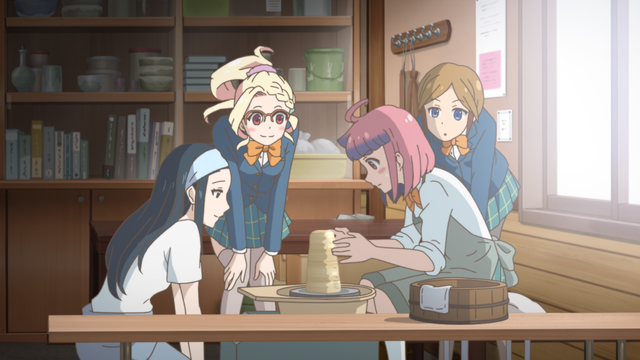
8. The 400 Blows
By no means is this because the vampires are unthreatening. But the vampires make quick work of this place by playing on insecurities and divides that already existed in the village, perpetuated by the very system that lets it survive. Even before the vampires appeared, village adults were untrustworthy of outsiders, and the youth was trapped in its walls desperate to escape. At its heart, one of the monsters in Shiki is the generational divide, which was caused by its other monster, paranoia and fear of outsiders. The natural conclusion of outside forces guiding these insecurities is to speed up a process that was always eroding this place: narrowing what an "outsider" looks like, fostering in-groups and dehumanizing those who even hint at changing. One girl being allowed to chase her dreams, or at least being given sympathy, may have postponed this entire horror; vampires alone did not destroy this place, the refusal of adults to change and adapt did. But once it becomes impossible to stop, the bloody conclusion is simply inevitable. The things that people (and vampires) are capable of are disturbing, and Shiki refuses to pull the camera away when people resort to their worst, most desperate instincts. Vampires are already plenty scary, but the human atrocities I'm forced to watch in lengthy, gruesome detail are what left me unable to sleep the night I watched them.
Shiki's aesthetic is perfect, the sort of show I'd kill for an art book of. These characters are humans but they are distorted and fake humans. They look almost like wax dolls, gothic but less refined. The Shiki dress in exotic, extravagant, and often sexually charged outfits that come off as otherworldly rich folks, but also add a layer of camp that makes the carnage at least a little bit fun. These people live in a perfectly drab, hot and human small village that feels fleshed out not only in terms of a ginormous cast of well realized characters but in terms of interconnected business and family matters. The series direction, music, and color palette make it feel desolate and isolating, especially with the Shiki mansion always hanging over shots since we are unable to escape its influence. All of these audio/visual aspects work in lockstep to make every single moment feel tense. Shiki is unsettling even in its most relaxed moments, and guttingly horrifying in its least. Mature yet campy, thought provoking yet intense, if you're looking for anime scares then Shiki is among my highest recommendations.
The spoils of war are part material and part cultural. The physical rewards can be obtained in other ways. You can train yourself to fight and pillage, but you'll probably get more by training yourself to farm, and all disagreements can plausibly be resolved peacefully. That humble way of living allows one to have abundance and to share with others. A world of kindness nets the physical rewards and then some. And it is possible to build pride in that, as Thorfinn does. This is what allows him to take his stance of pacifism, living with the ghosts of those he's murdered to build something for those he can still save. The great downfall of Viking culture is that pride is tied to violence; that the most honorable way to die in this culture is to die a warrior's death and go to Valhalla. It is not the physical state of the world that creates violence, it is the warrior's pride that does. Perhaps calling for complete pacifism is idealistic, but naive idealism is required to change culture. And moreover, it requires far greater strength to stand against the values of one's own culture than it does to fight in wars. Vinland Saga's poignant, meaningful, and powerful second season is a cry for help, but it's also an exclamation of hope. We do not have to raise our children in a world full of leaders with a warrior's pride, and we can teach others to find meaning and pride in creating things and building the world up. Thorfinn's arc has been such a joy to follow, and it warms my heart to no end to see this story stand against our violent culture even when so-called fans criticize it for doing exactly that. Much like Thorfinn himself, Vinland Saga is willing to stand up to deeply engrained culture, and for that, it is special.
MyGO's cinematography is really remarkable, I can't imagine this series working without the 3D camera allowed by the series being CGI. Episode 3 is one such standout; shot entirely from Tomori's first person perspective it's the only way to understand the world how she sees it. It was this episode that made me fall in love with the show, and with Tomori in particular as anime's best representation of an autistic character by a country mile. But from episode 7's invasive, voyeuristic framing to episode 10's extraordinarily cathartic performance sequence, MyGO's camera is possibly its biggest weapon in making this drama so powerful. I feel as if I'm speaking vaguely for this entry, but that's because MyGO is so tightly crafted that I cannot give anything but lip service to how it works. It's hard to describe a series that is so earnest and emotional in anything but clinical terms when so much of what makes it earnest is, ironically, clinically precise execution. But this angsty band drama is one of the most cathartic media experiences I had last year, it is special.
Our bandit is the perpetrator and cannot truly make himself look like a victim, but I also think he'd rather die than refuse to talk about his accomplishments. He embellishes the story to make himself look like a badass, he downplays his sexual assault and paints the dual with the husband as an honorable dual with a skilled swordsman which he managed to come out on top against in a close match; a story that doesn't absolve the crimes but makes him look cool, powerful, and honorable. Toshiro Mifune looks like he's having so much fun playing this role that it's easy to get immersed into his story by sheer force of charisma, but that's what he wants. None of the other characters paint him in this way, their stories each make themselves look as good as possible, the wife's ghost (the other standout performance in my opinion) plays up the bitter victimhood while ignoring the parts about losing her purity, and the husband frames the dual as much more scrappy and unfair. These are all superficial details, and I feel like I could rewatch this movie over and over again and keep picking up on new details about how the cast frames their story. Framed through others relaying this story about telling a story, it asks me to consider just how much we can trust people. Does goodness really exist in this world, can I ever take anyone at their word? Rashomon is simply brilliant, and makes me think that Kurosawa must definitely be the old master other's say he is. It's wildly entertaining and thought provoking and impeccably crafted. Or at least, that's how I remember it.
This took 7 months to release, maybe blogging is not for me, lol. I don't set myself deadlines for these posts, and while I thoroughly enjoy writing these I much more thoroughly enjoy finding and watching the works that might become entries on this list. Speaking purely personally, what I like about this list is that, while it is perhaps less broad than last year's, I've still managed to keep to my promise of experiencing a broad array of great art. Even anime has been my primary form of media, my 2022 favorite was a live-action film, and my 2023 favorite was a video game. I've started digging into classic cinema, I read another visual novel, I watched my first western cartoon show in ages, and I saw the start and the end of important franchises.
What this endeavor has reiterated to me is that there's just so much fantastic art and I truly and utterly love experiencing it. Maybe I take a similar lesson every year, but the world is not friendly to great art and it dislikes positivity. I'm inundated with so much negativity, so much discourse about how there's nothing good anymore, no more creativity in modern film/anime/video games, nothing without perverted stuff. And older media is supposedly boring, pretentious, and only liked by those who want to appear superior. It is all too easy to be surrounded by negativity and internalize it. But every year I reflect on what I experienced and relearn the same lesson: all of that negativity is false. Every year brings new releases that are creative, memorable, and moving. And the old classics are remembered for a reason, they're captivating and memorable and powerful. Popular blockbusters can be among the coolest, most creative films of a given year, and obscure or artsy works can give experiences more specific than anything the mainstream is allowed to. I also don't believe anything on my list is perverted or problematic .
There's such an abundance of phenomenal art both new and old, I can only ever be positive. Don't let anyone trick you into thinking that great people aren't making great art anymore, or that there was ever a period where the greats were lesser. Keep an open mind, explore what's out there, check out that classic you keep saying you'll get to eventually, be curious about that obscure flick the that director praises, check out that superhero movie even if you're tired of it, pick up a book after having never read since school, just do it. Because even though this took 7 full months to write and release, I sit here finished, looking back at this list while editing my final touches, and feel so rewarded to have experienced all of this wonderful art. Finding things that resonate with you and learning new ways to appreciate and enjoy stories are among the greatest feelings in the world, and it is so easy to do that I wonder why so many refuse to. So don't give in to the negativity, it is easy to be positive about shows and movies and games and books; and even if my choices don't resonate with you, I hope that my process and enthusiasm will. Media is good... yeah, media is great.
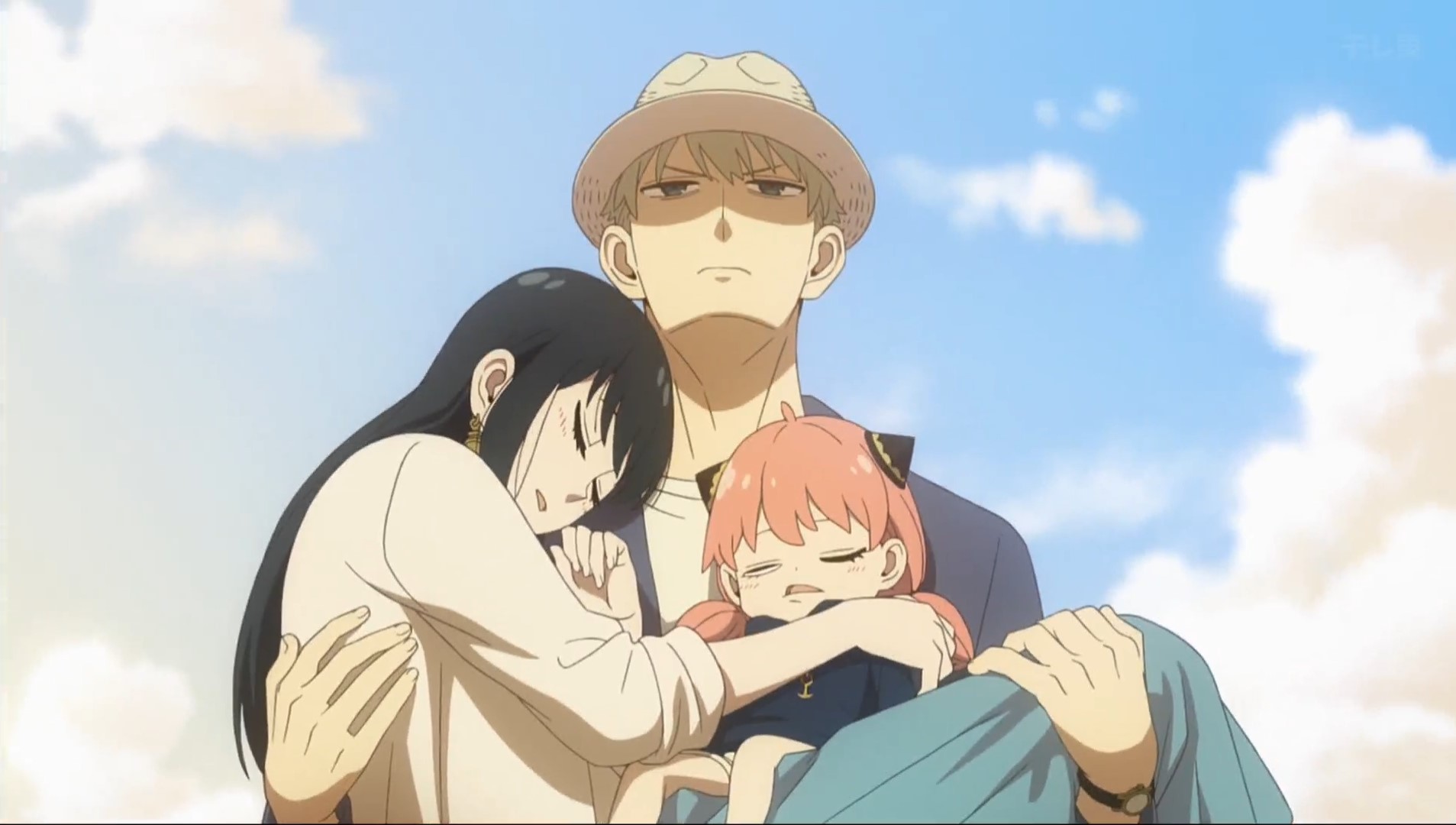

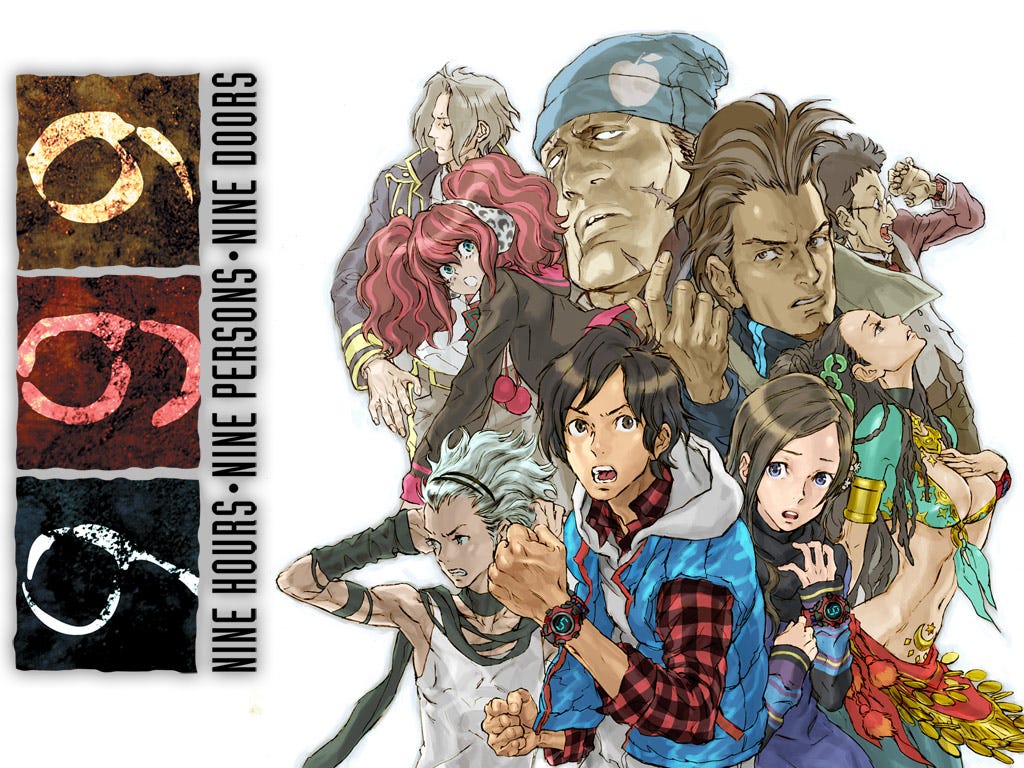


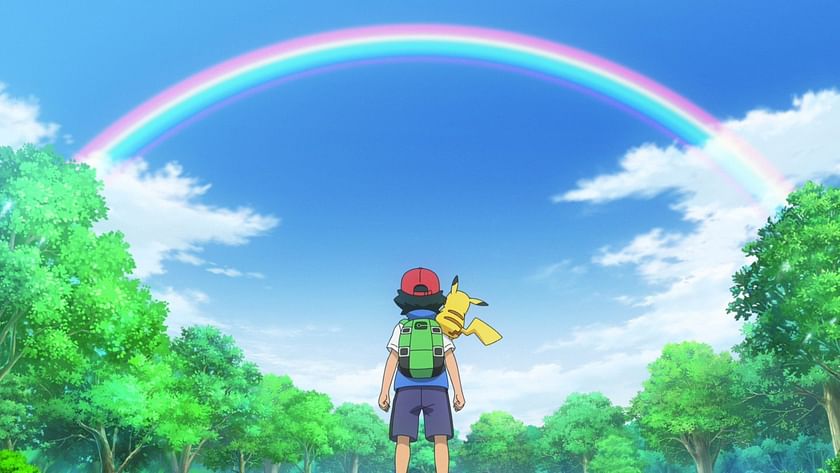

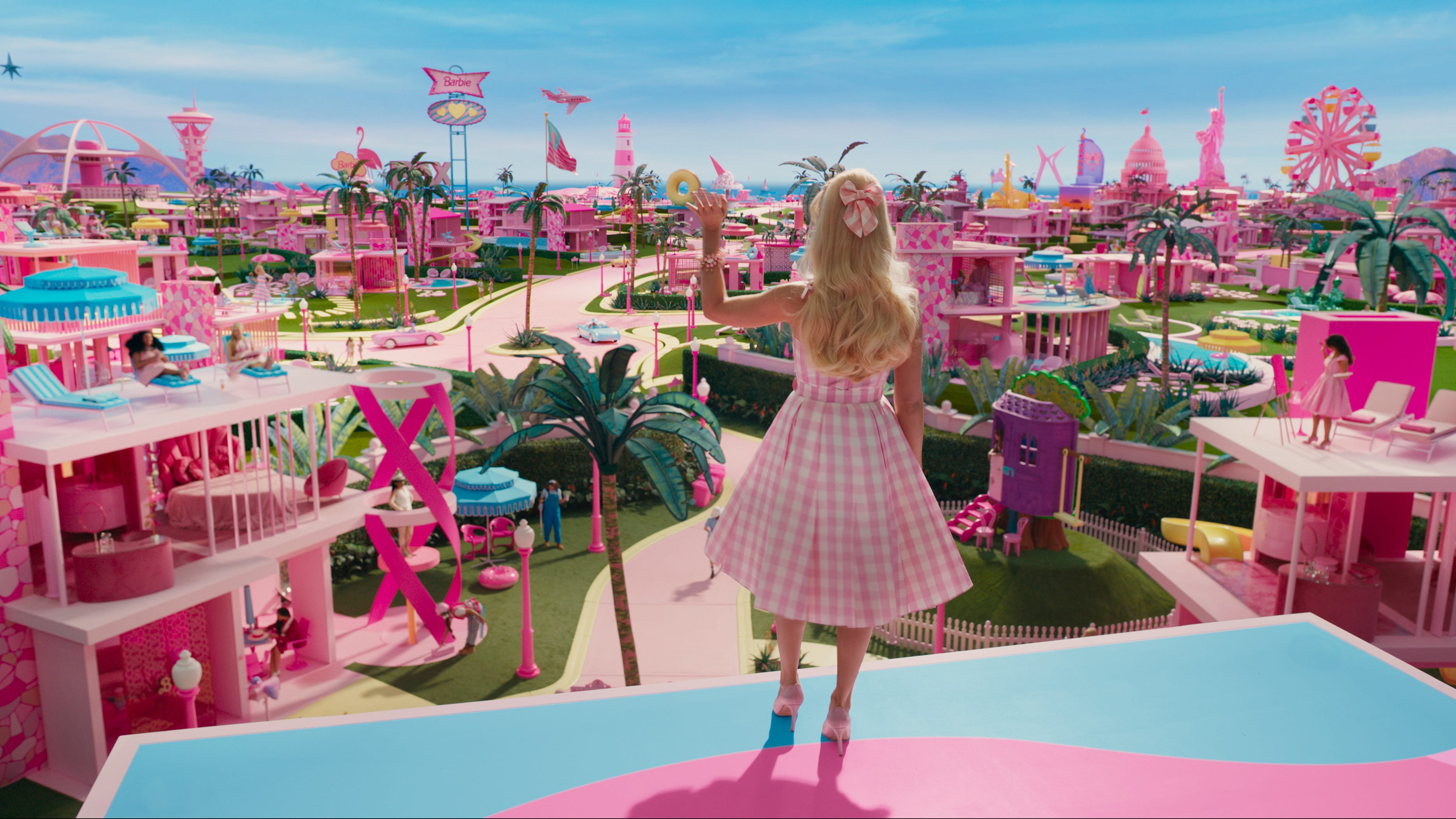


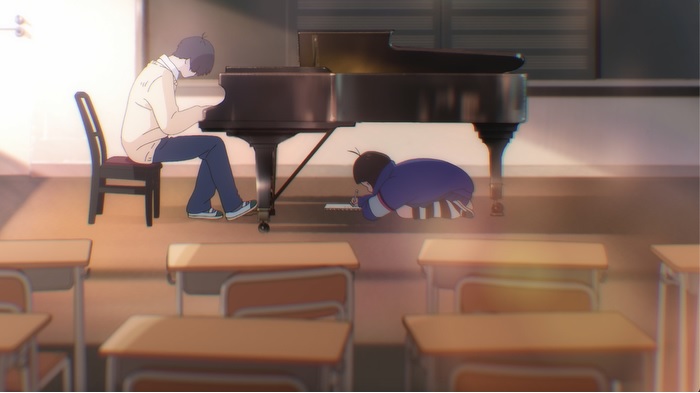



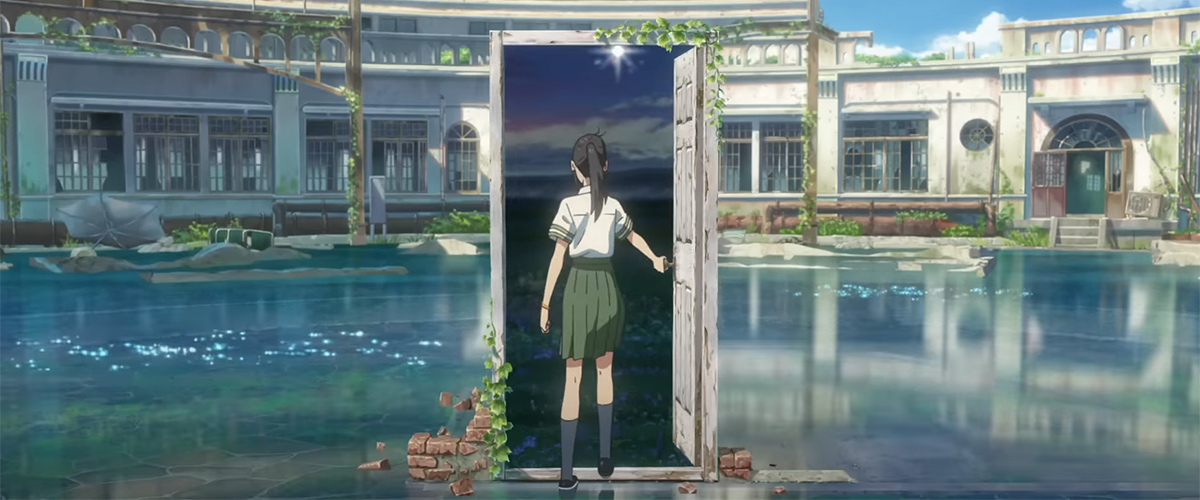
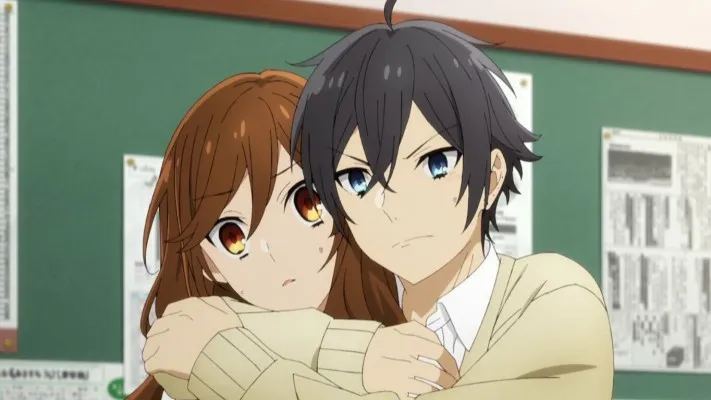
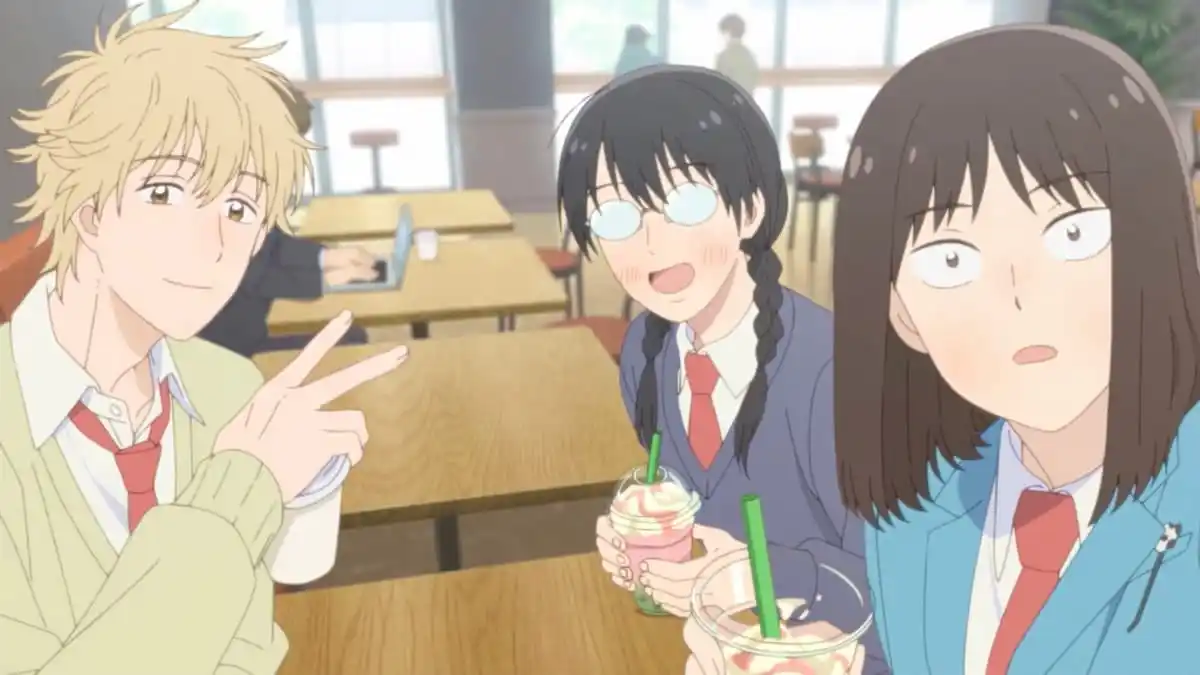


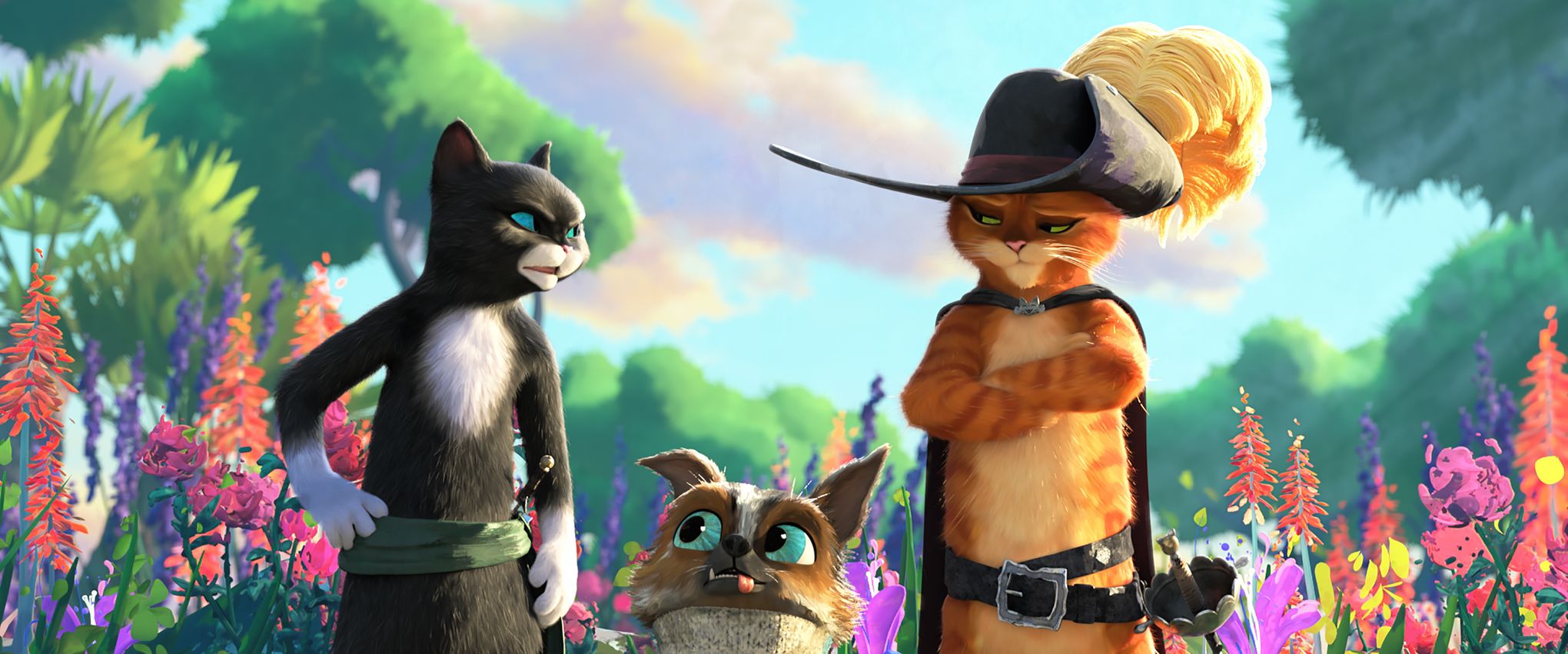
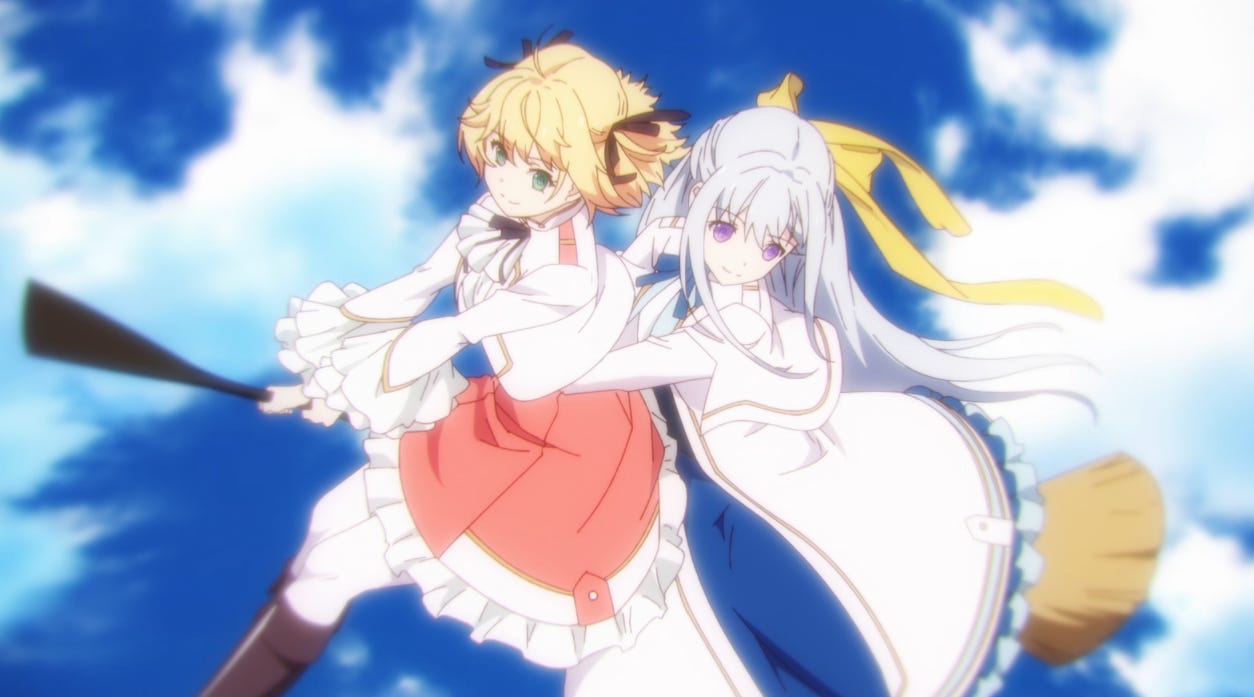
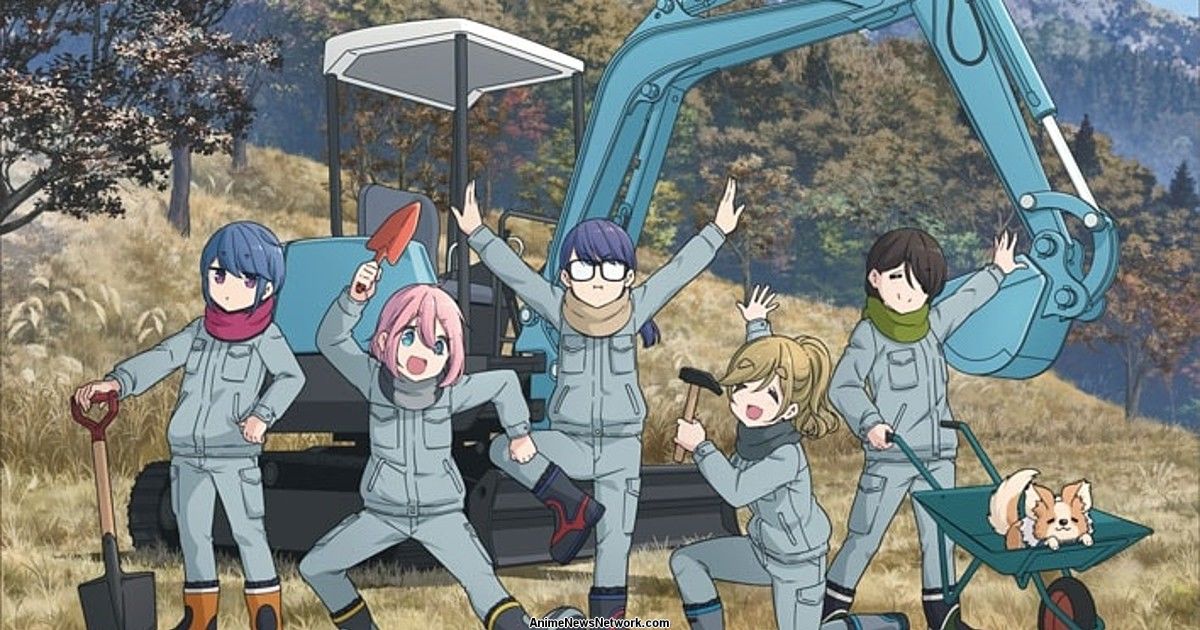
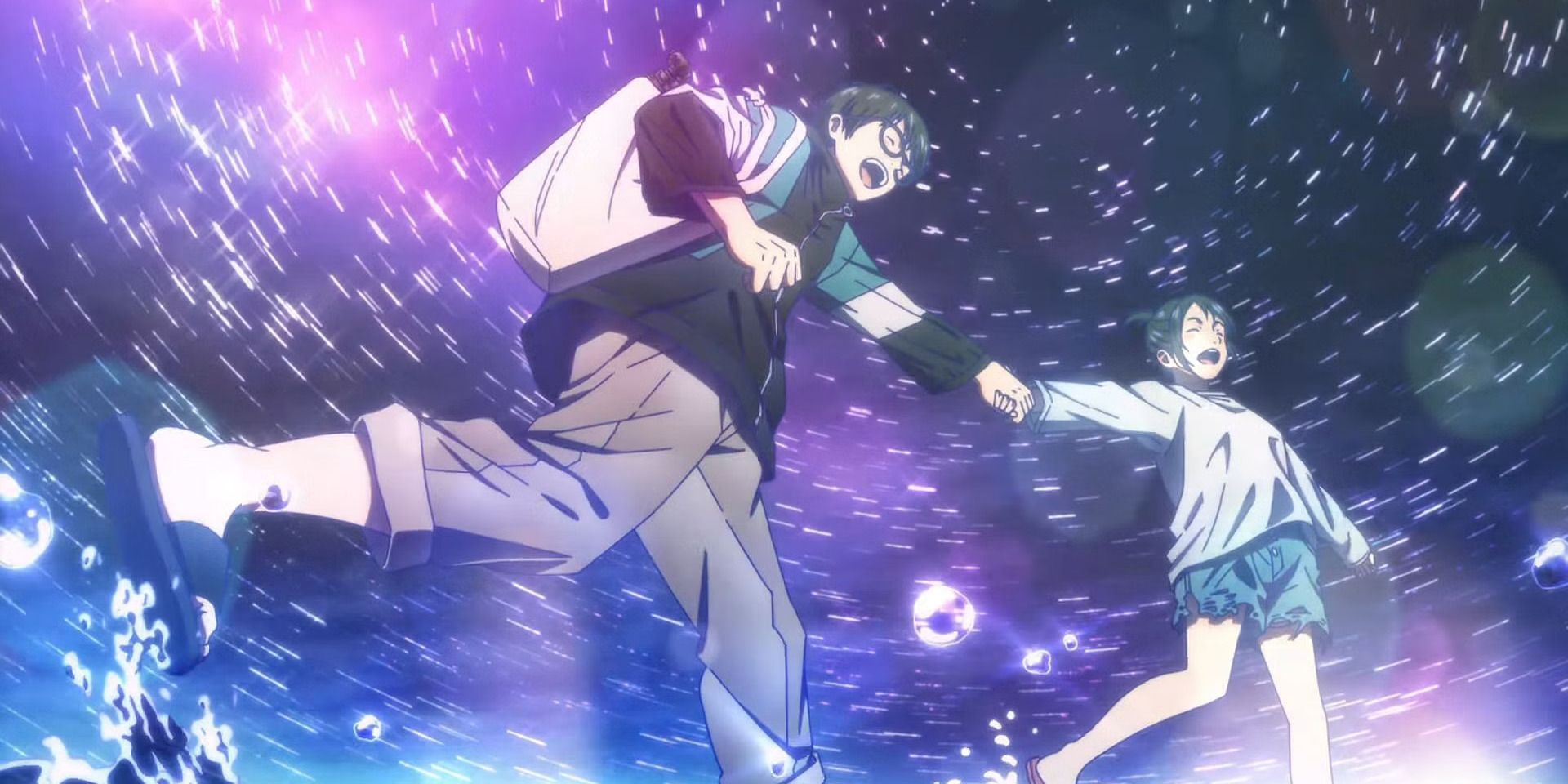
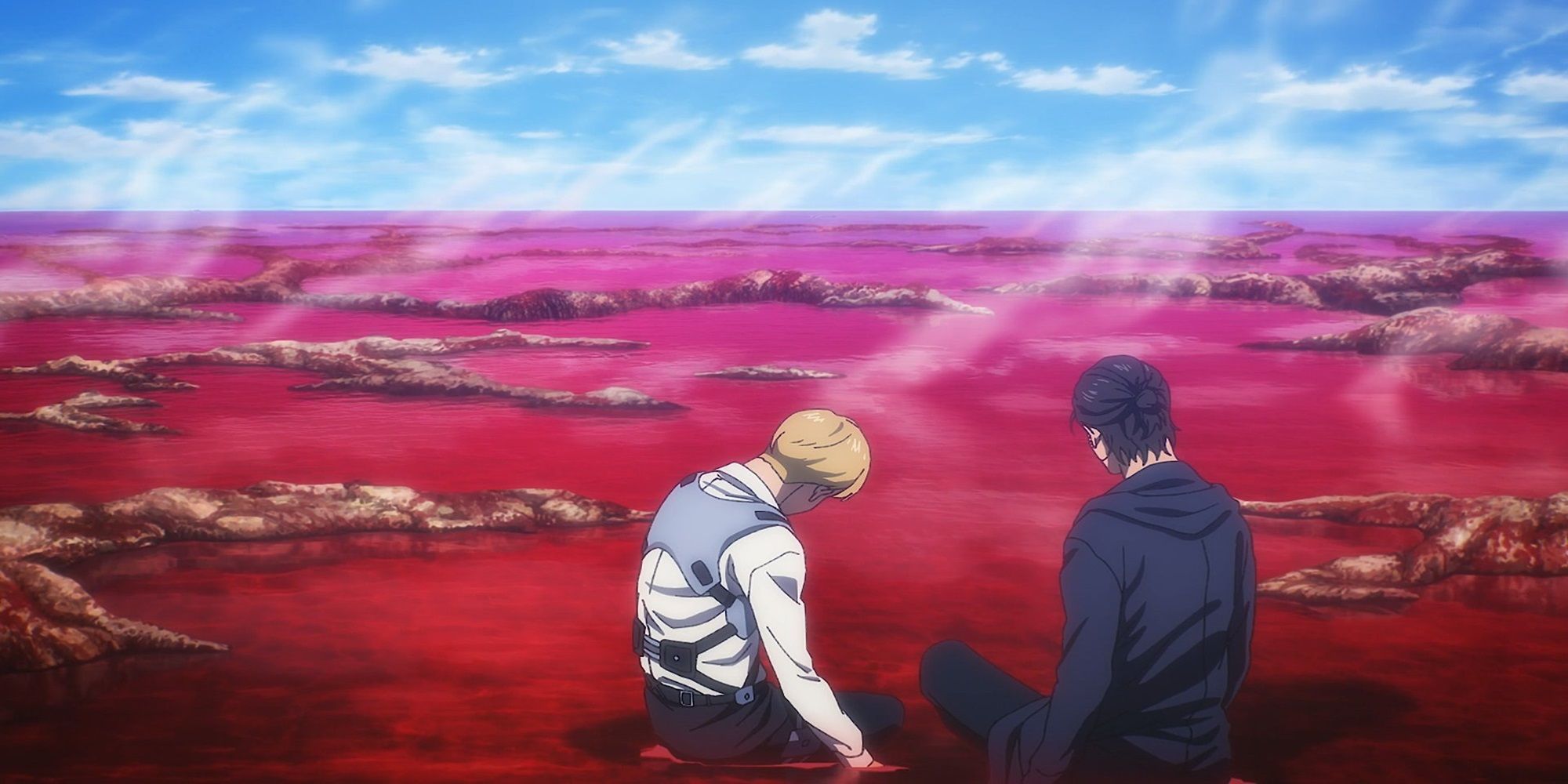

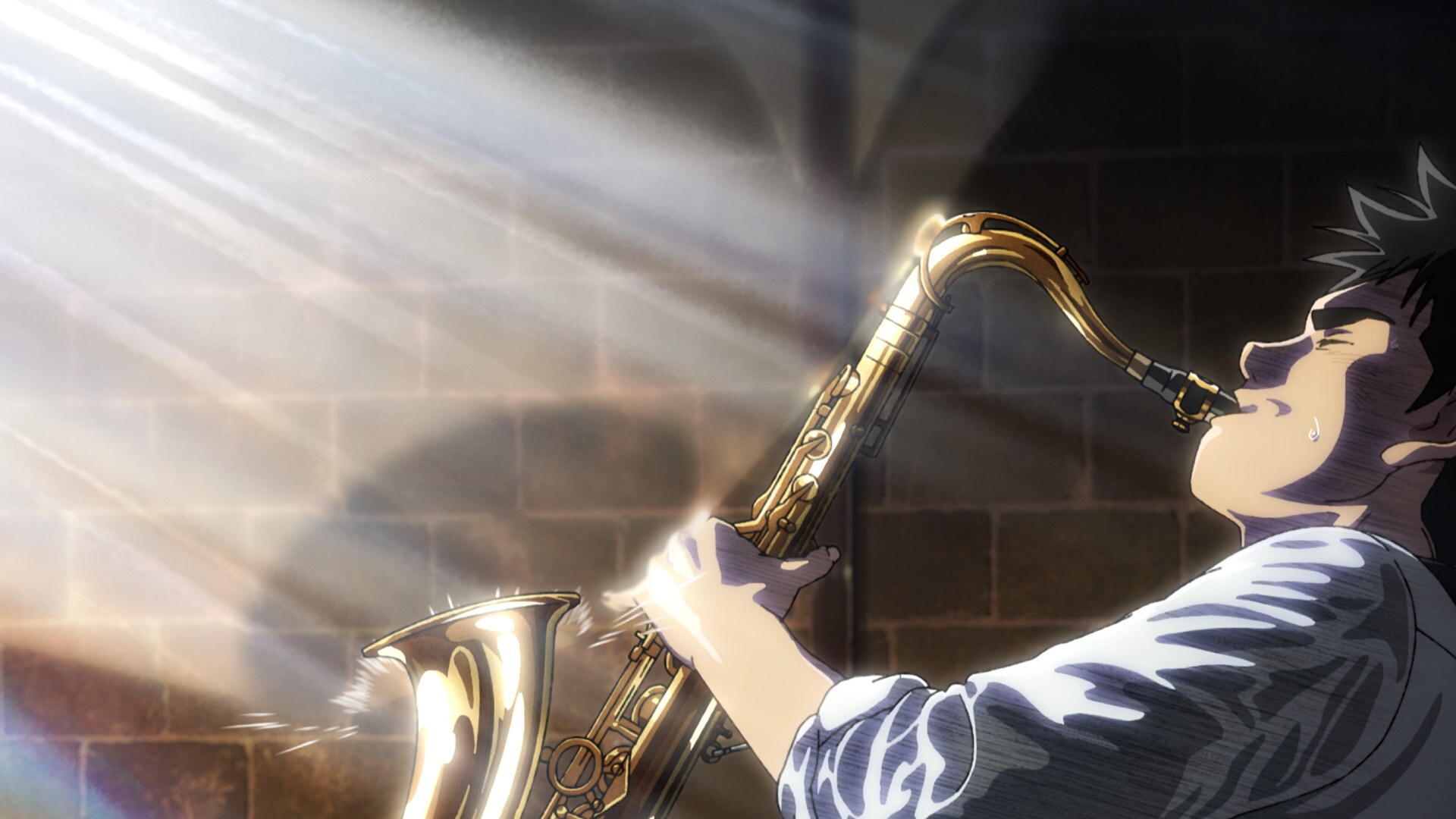




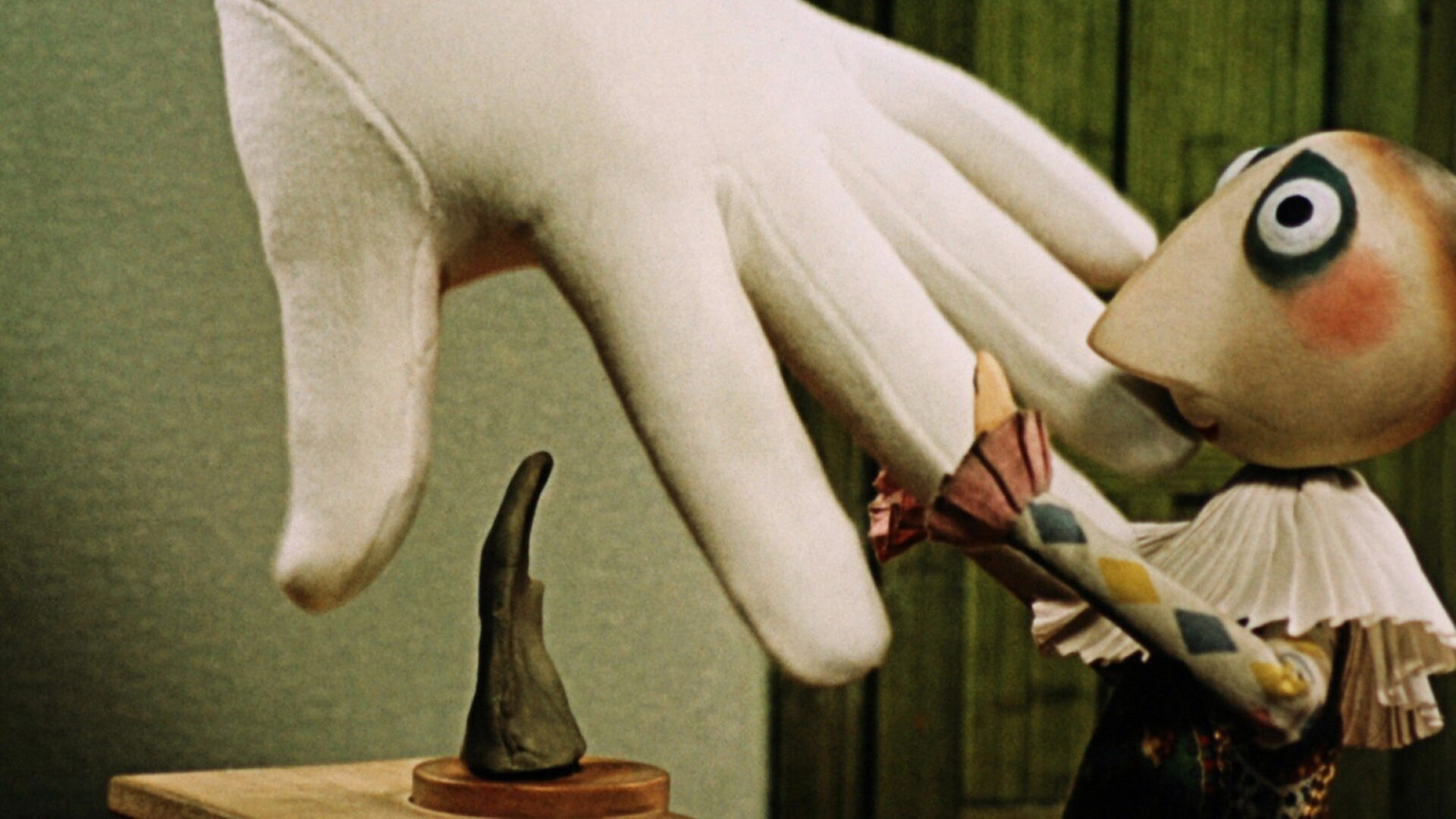
.jpeg)

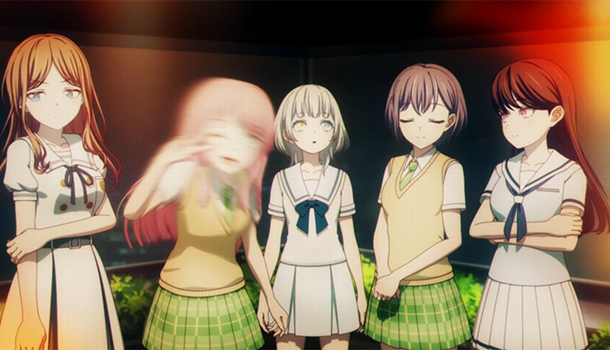



Comments
Post a Comment